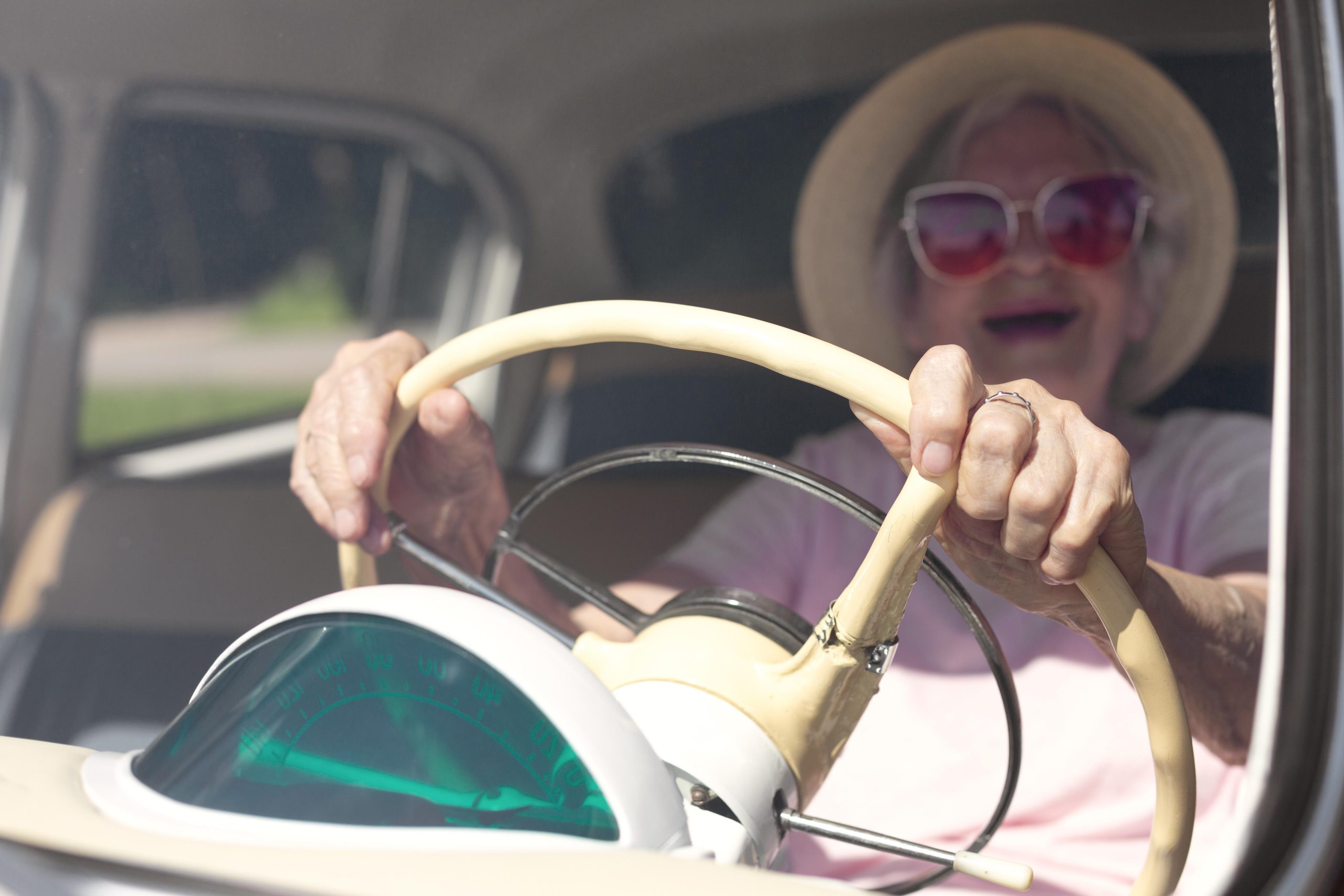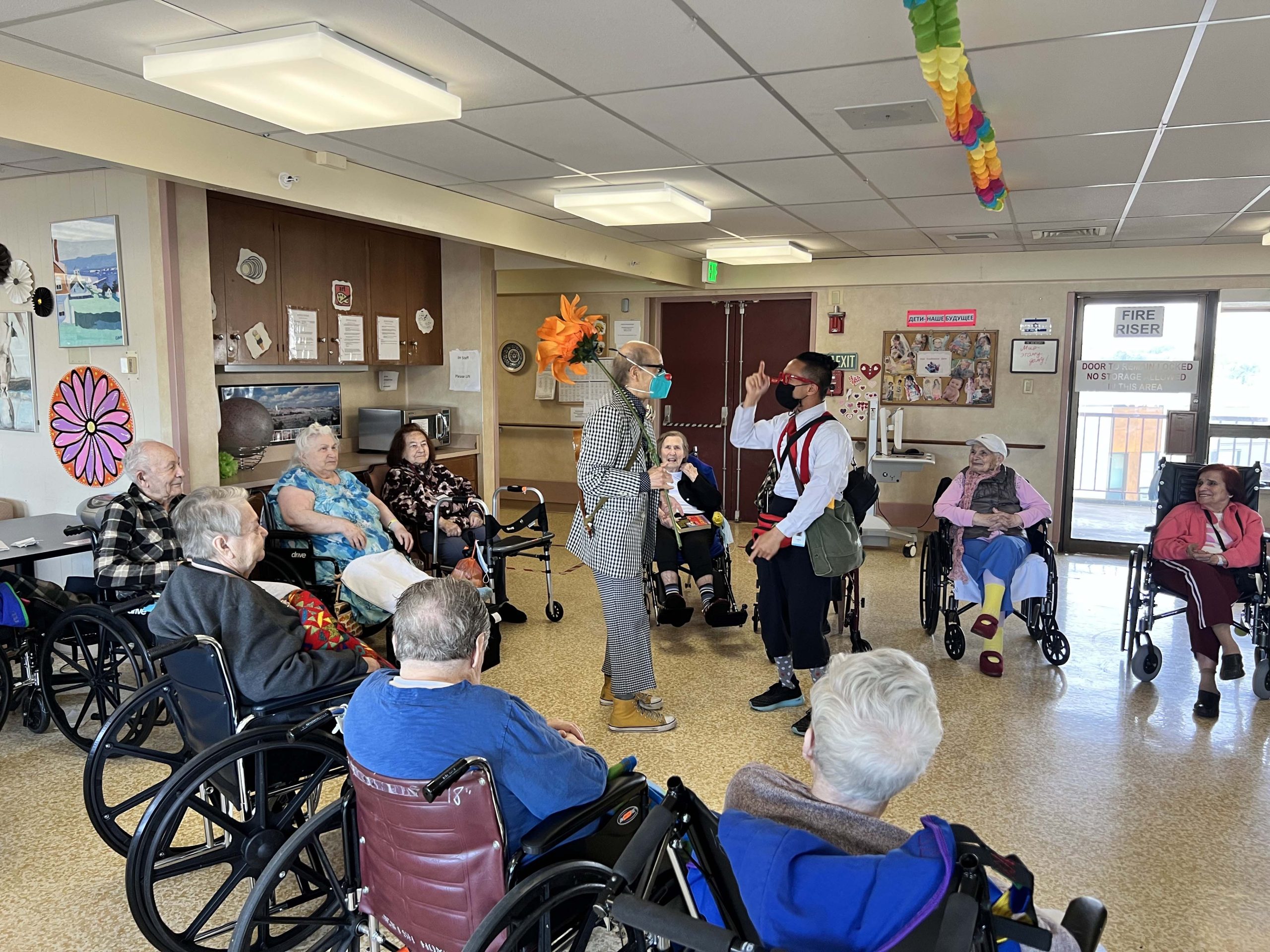Poet’s interest in herbs and healing leads to growth of Kitchen Herbalism workshops
When Marina Lazzara was 13, she held a tea party for friends with herbs she picked from her backyard in Easton, Pa. The problem was the plant she had so carefully prepared was not peppermint, as she thought, but poison ivy.
One of her guests got a rash, and Lazzara’s eyes swelled up, but her mother stopped them before most of the tea was consumed. “It was my first existential crisis – I had poisoned my friends! “
In spite of an inauspicious start, Lazzara, after earning a master’s degree in poetics, decided to return to her interest in plants – and healing. “After weaving working with plants in and around my life, I’m in a happy place now with work, family and my other loves.”

On a recent Saturday morning, Lazzara, 53, held her Kitchen Herbalism class at the monthly meeting of the Older Women’s League of San Francisco. Lazzara passed around packets of fresh herbs such as rosemary, thyme, parsley and basil for everyone to feel, smell and observe.

Lazzara’s class is not about cooking but herbs that heal. She calls it Kitchen Herbalism because many are used in recipes all the time. “I’m only just reminding people of what they already know,” she said. “Perhaps they haven’t thought of them as having healing properties.” For example, she said thyme, packed with vitamin C, has anti-viral properties and can help alleviate chest congestion, coughs and sore throats.
With the fresh herbs, Lazzara demonstrated how to make infusions by pouring boiling water that has slightly cooled into a quart jar (with a spoon inside to prevent glass breakage). “Seep for at least four hours, refrigerate overnight for a more medicinal infusion, strain, and drink the health-enhancing tea,” she said.
Self-treating during college
Lazzara discovered the healing power of plants in college as a way to help herself without medical insurance. As an undergraduate at Old Dominion University in Norfolk, Va., she was frequently sick and had bad insomnia. “Someone turned me onto echinacea to build my immune system, and valerian tea so I could sleep.” She started reading about herbal healing. “It was the time when yoga and herbal health was just starting to become known.”
For those who don’t grow herbs, Lazzara said that dried herbs are a fine option. “Places like Rainbow Grocery on Folsom St. and Scarlet Sage Herb Company on Valencia St. carry organic herbs from reputable farms in Sonoma.”
“The best way to ascertain the freshness of dry herbs is to smell them and observe the color, she said. To keep them fresh, buy only the amount you need for two weeks. To make the infusion, she puts one teaspoon of dry herbs in a tea ball into one cup of water.
Lazzara espouses using both plant-based treatments and western medicine. “When my daughter was sick, I gave her ginger and chamomile tea to drink regularly. I also gave her Benadryl so she could sleep. My daughter was better in two days whereas most of the other kids were home for a week.”
“Sometimes we’re going to get sick,” said Lazzara, “but it’s the length of time and severity that herbal medicine can impact.”
A focus on senior health
Lazzara, who has a certification in nutrition from City College San Francisco, promotes health among seniors and their families in two part-time jobs. She coordinates a six-week diabetes education program for On Lok senior services at various locations. She also teaches Kitchen Herbalism, Food Smarts and writing workshops at senior centers in the Merced and Sunset neighborhoods for the Community Living Campaign, a nonprofit that assists seniors and adults with disabilities.
Lazarra also maintains three private, residential gardening clients from her time as a full-time gardener. “My baby interrupted my study in horticulture at City College, but I got enough under my belt to greatly enhance my knowledge.”
She still keeps her hand in poetry, publishing through Two Way Mirror Books, a small Bay Area press, and teaches writing and poetry through the LitQuake Elders Project.
Outside that, she and her partner, J. Lee, play guitar in a longtime San Francisco rock and roll band called “The Rabbles,” and together raise their 11-year old daughter, Maizie Jade.
Her true commitment to herbalism began after her move to San Francisco. After finishing college, she began her master’s in poetics in 1989 at the New College of California. She worked odd jobs until she completed her degree in 1996.
Along the way, she developed a side passion for science and botany. “After all, Emily Dickinson backed into science through art as did many Victorian women,” she said. Before writing poetry, Dickinson had gathered and classified pressed flowers.
Serious study of herbs
In the late 1990s, Lazzara started taking classes at Scarlet Sage Company. For $10 a class, she learned all about herbs for women’s and children’s health. But with a relationship ending, tired of her administrative job, questioning whether she wanted to study for a doctorate degree and with a growing passion for herbal learning, Lazzara made a decision. “In the early 2000s, I sublet my San Francisco apartment and enrolled in a five-month work-study program at HerbPharm, a 72-acre organic farm in Williams, Ore.
“We farmed during the day, and studied with herbalists and botanists at night. Most of them called themselves witches and medicine-makers.” The work of witches, first appeared in written form in Old Testament writings from 500 B.C., has contributed to the application of herbalism today.
After finishing her work-study at HerbPharm, Lazzara thought about studying to be a clinical herbalist. “There were a lot of factors to consider, but mainly I didn’t want to diagnose people and hold their health in my hands,” she said, describing herself instead as a “folk medicine mama.” Folk medicine, the tea infusions, and using herbs in cooking, are low-risk options, she said.
When her baby was two, Nature in the City, a small San Francisco nonprofit for habitat restoration, hired Lazzara. “They placed me in the natural areas program in Golden Gate Park where I learned about California native plants and pollinators.” She worked there until recession funding cuts started.
Co-workers recommended her to clients for private residential gardening, which she did for eight years, up until last year. “I was beginning to wear out from the work, both as an entrepreneur and from suffering pain in my wrists, arms and shoulders.” And, she added, “When I was just working with plants, I got lonely.”
That’s when she went back to school for her nutritional certificate. She also decided she wanted to work with the older adult population. “My first job was at 13 helping my mother with her job in the convalescent hospital. It’s like I’ve come full circle.”
Those interested in finding out about upcoming workshops can email her at rhythmgardens@gmail.com.





